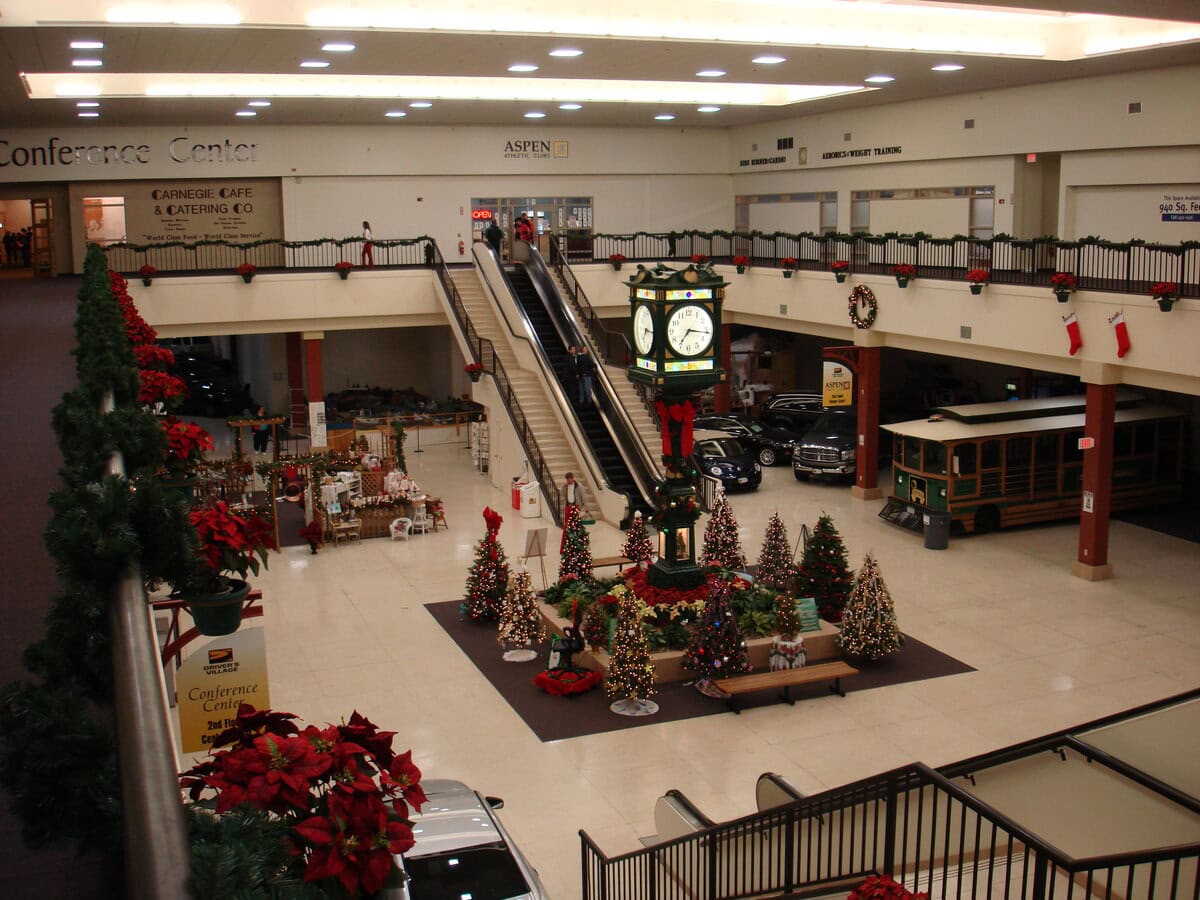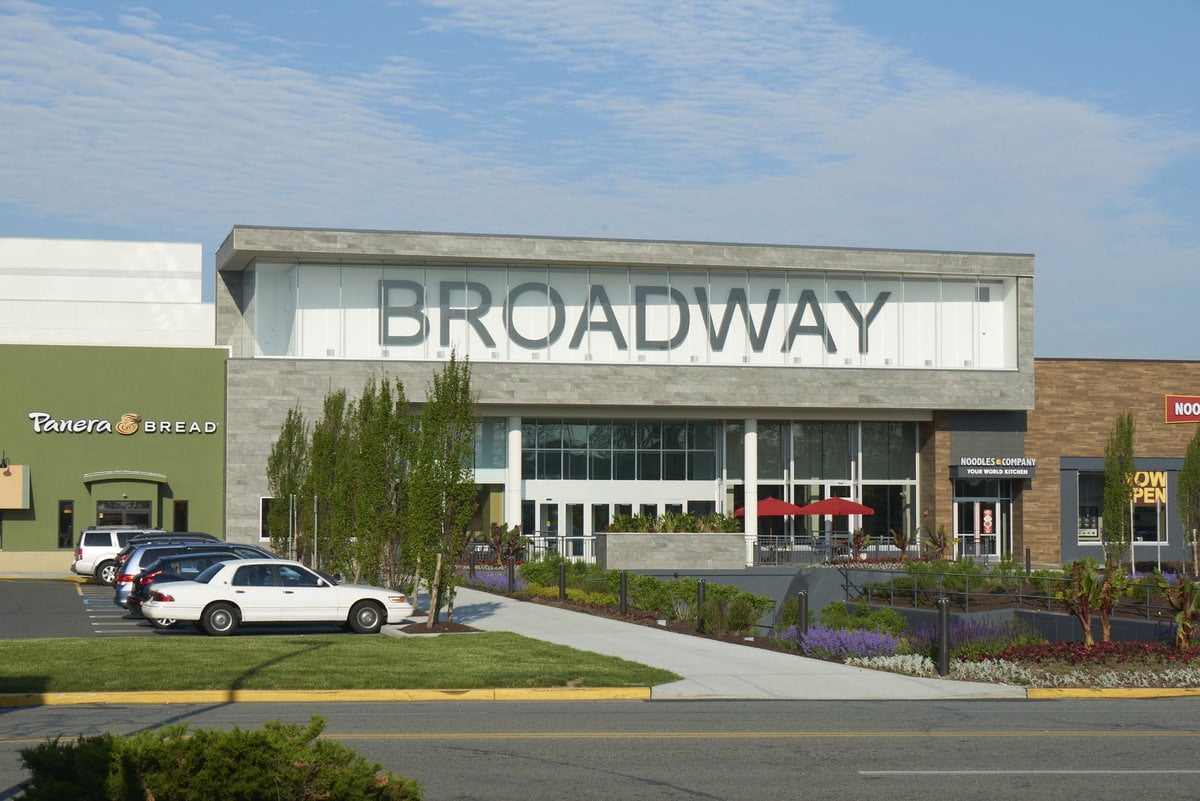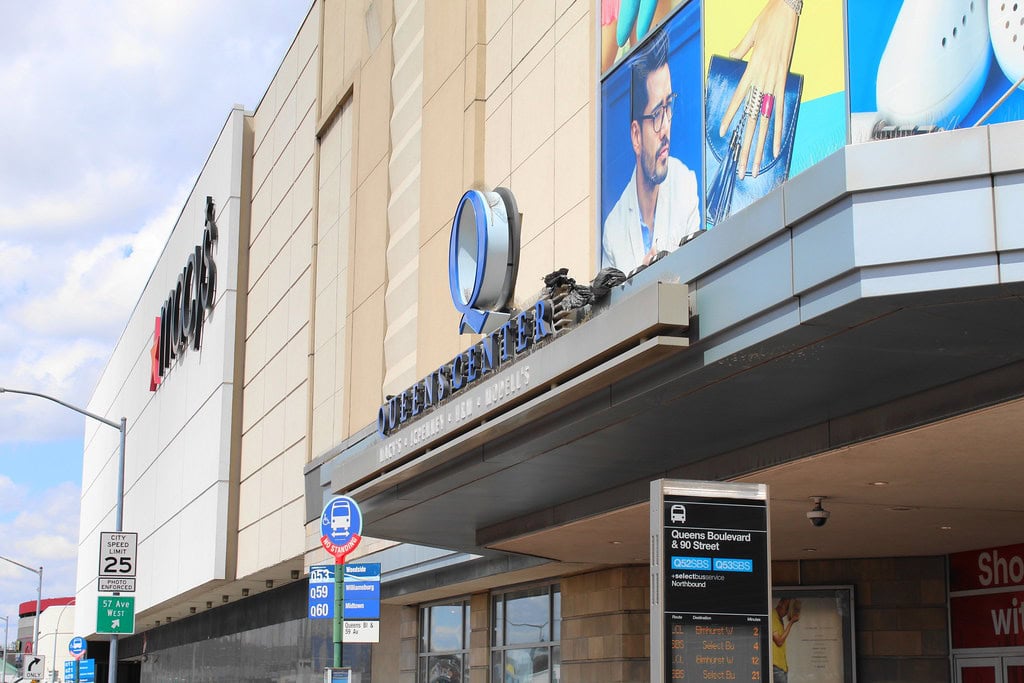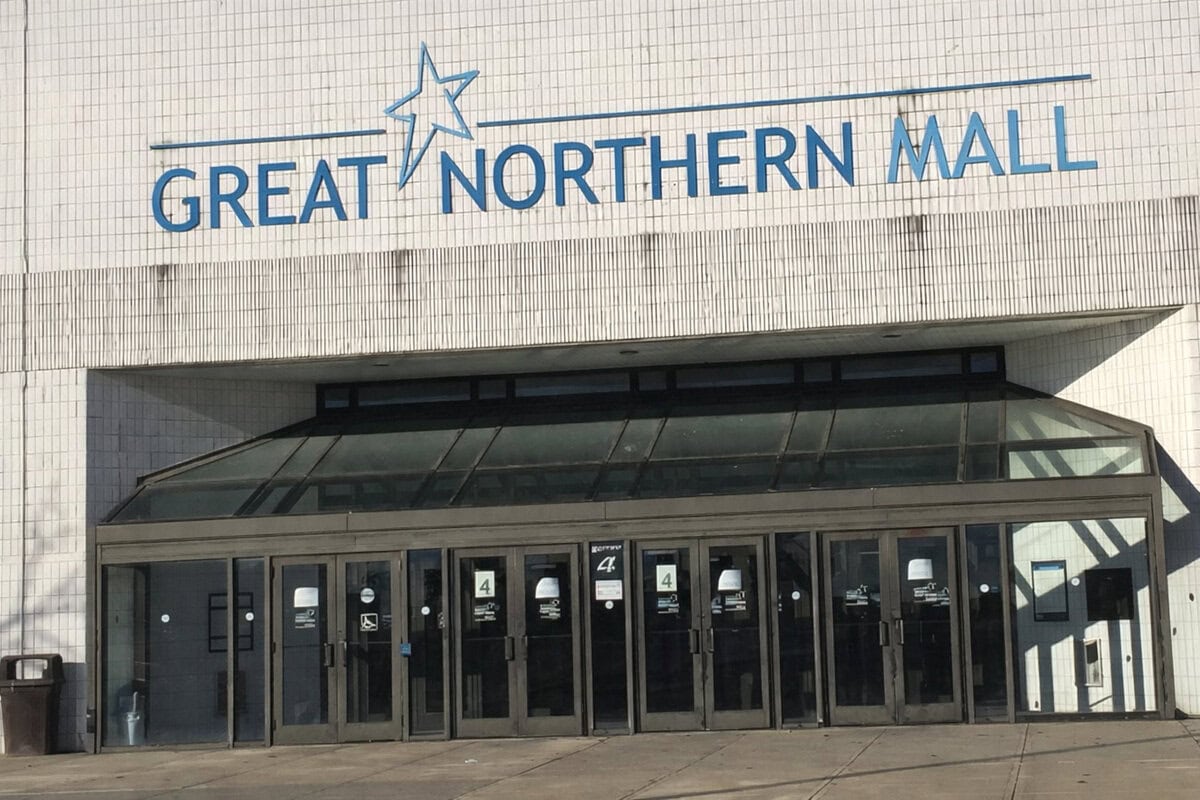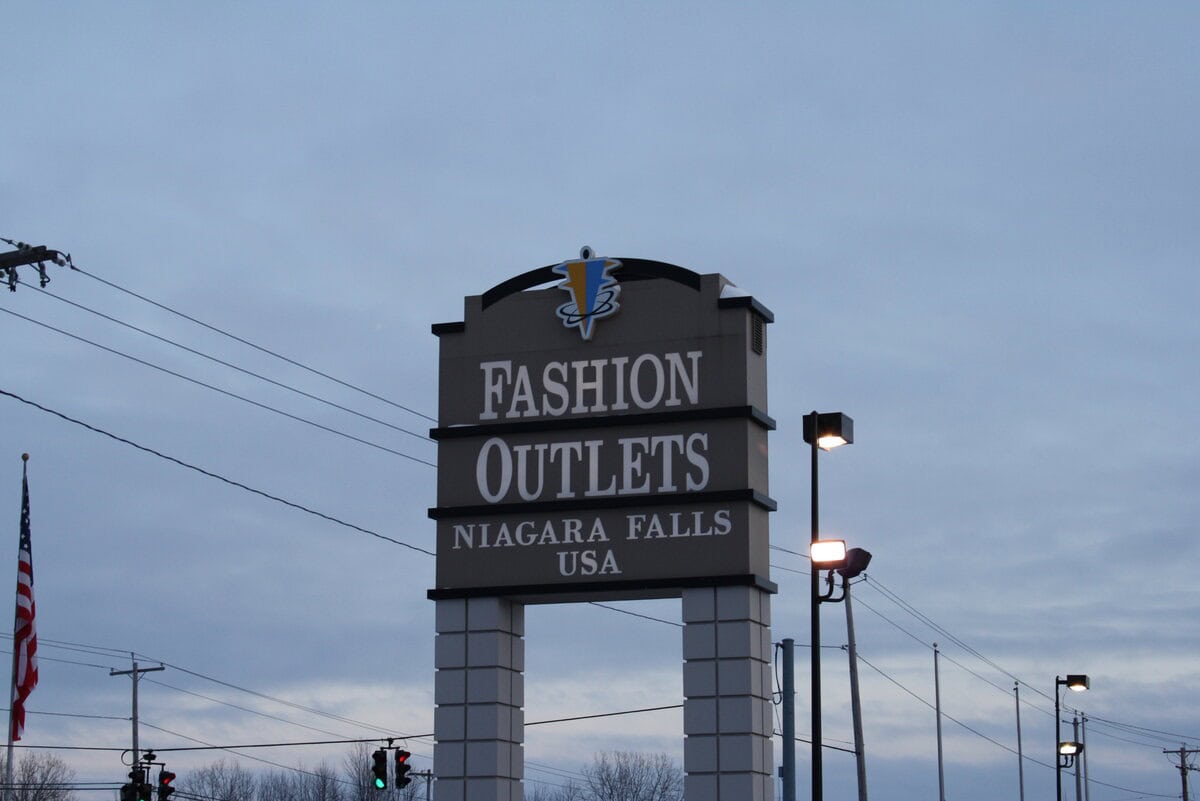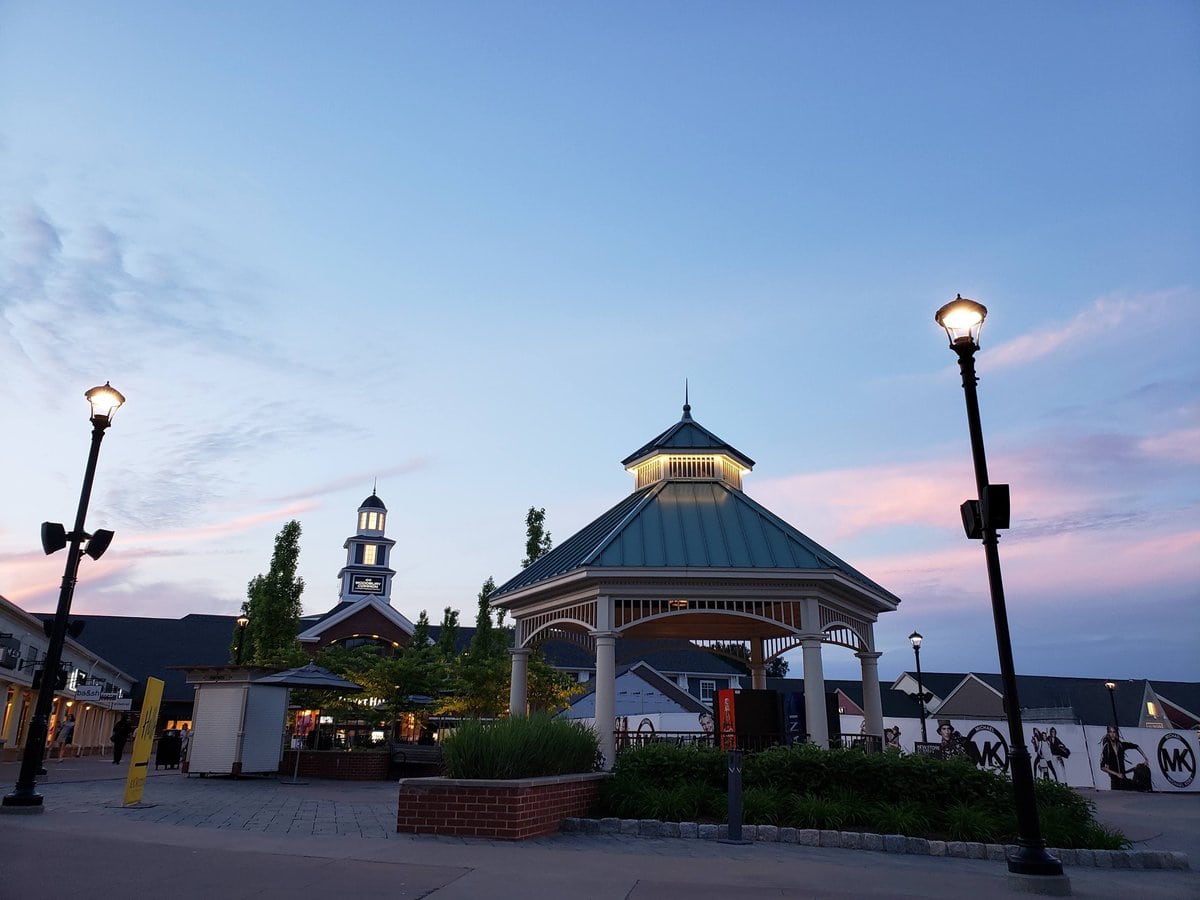Origins and Early Development of Queens Place Mall
In the mid-1960s, Elmhurst, Queens, was rapidly changing, and R.H. Macy & Co. saw an opportunity. In 1964, the company announced plans for a groundbreaking retail experience: a circular Macy's department store right on Queens Boulevard.
At the time, this kind of design was unheard of in the United States, and The New York Times even called it the "first of its kind." Skidmore, Owings & Merrill, a well-known architectural firm, handled the project, aiming to create something that would stand out in a busy urban environment.
By 1965, the construction was complete. The store was a three-story marvel featuring an unusual round structure that fit five parking decks around it. This design made shopping accessible, and visitors could park and be steps away from the store, no matter which section they wanted to visit. Walter Kidde Constructors built the 330,000 sq ft building, which is the new commercial center in the area.
But things didn't go as smoothly as planned. Mary Sendek, who owned a house on the corner of 55th Avenue and Queens Boulevard, refused to sell her property. It was her childhood home, and she wasn't giving it up.
Because of her refusal, the building's design had to change. Instead of a perfect circle, the store had a slight notch, an odd but memorable detail. Mary held onto her house until she passed away in 1980, leaving a small mark on what would become a landmark in Elmhurst.
At the time, it wasn't just another department store; it was an architectural feat and a new chapter in the area's economic story.
For those curious about things to do in Elmhurst, New York, this store became a must-see, drawing crowds from across the city.
Transition to Stern's and Subsequent Changes
By 1995, Macy's had outgrown its circular home in Elmhurst. The department store moved to the larger, nearby Queens Center Mall, leaving the original space up for grabs.
Soon after, Stern's, a department store owned by Federated Department Stores, the same company as Macy's, took over. Shoppers welcomed the change, as Stern's aimed to breathe new life into the building.
Stern's operated there until 2000. That year, Federated Department Stores made a strategic move to phase out Stern's brand completely. This was part of a bigger plan to optimize operations and focus on Macy's.
This shift left the Elmhurst building vacant and at a crossroads. Retail trends were changing fast, and the large, uniquely shaped structure needed a new purpose.
Then, in May 2001, a big transformation began. Forest City Ratner, a real estate developer, purchased the property.
The building didn't just stay a department store; it evolved into Queens Place Mall. The redevelopment added two extra floors and turned the once standalone department store into a mixed-use retail space.
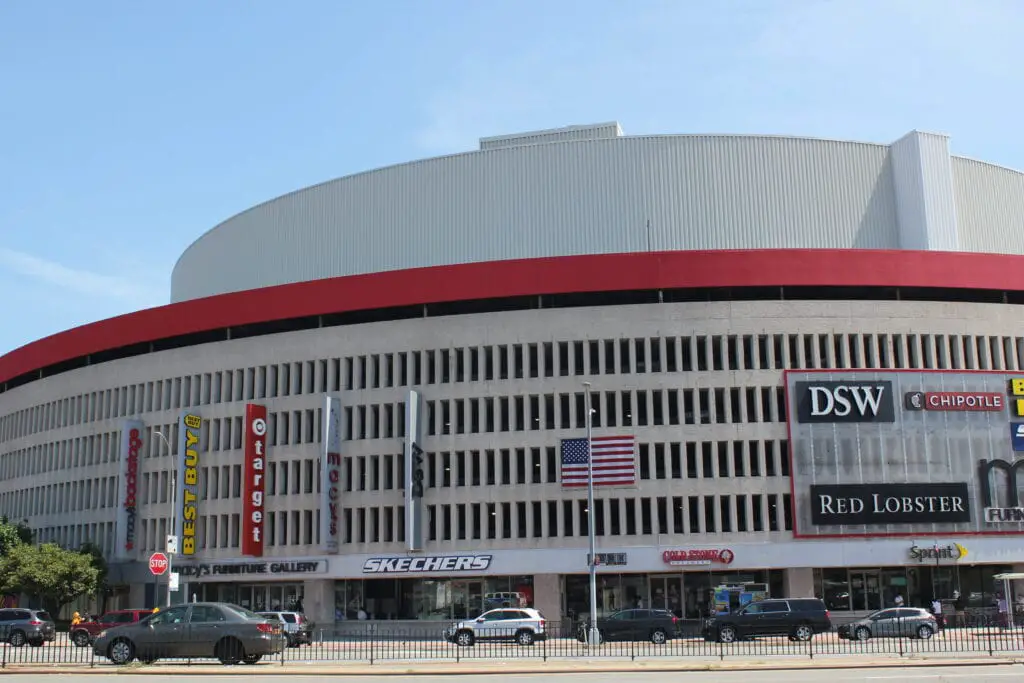
Architectural Features and Design
From the outside, Queens Place Mall stands out. It's hard to miss the rounded shape and the parking decks that wrap around the building. This design made sense in the 1960s, offering practical convenience to shoppers who wanted to park and get to the action quickly.
Skidmore, Owings & Merrill crafted this plan with efficiency and modern urban needs in mind, and it still draws attention today.
The main entrance greets shoppers entering from Queens Boulevard, while other access points include a parking garage on 56th Avenue and 90th Street.
Even after its conversion into a mall, the space kept much of its original architectural charm. Forest City Ratner's renovations added more shopping levels but preserved the quirky, round shape that makes the building memorable.
Current Tenants and Offerings
Queens Place Mall continues to draw in visitors with its mix of well-known stores. As of 2024, the mall features major retailers such as Target, Lidl, Macy's Furniture Gallery, and Macy's Backstage. Target offers everything from groceries to electronics, making it a popular spot for everyday shopping.
Macy's Backstage offers discounted fashion and home goods, featuring apparel for all ages, accessories, beauty items, and home decor - all at outlet prices.
Macy's Furniture Gallery showcases a wide range of home furnishings, from sofas and dining sets to mattresses, catering to both traditional and modern styles.
Mattress Firm offers a selection of mattresses and sleep accessories, including memory foam, hybrids, and adjustable bases. Staff can help you make your choices.
Skechers sells a variety of comfortable footwear, from athletic sneakers to casual slip-ons, suitable for everyday use and specialized activities.
Over the years, the tenant mix has changed to keep up with community needs. Early in 2024, Lidl opened a 35,000 sq ft grocery store on the lower level, replacing DSW.
This addition marked Lidl's second store in Queens, following its Astoria opening in April 2021. The new Lidl store offers a variety of products, including fresh produce, bakery items, and European specialties, aiming to provide affordable grocery options to the local community.
Visitors can also enjoy Brooklyn Dumpling Shop for innovative dumplings, Chipotle Mexican Grill for customizable Mexican fare, Cold Stone Creamery for handcrafted ice cream, Gong Cha for bubble tea, Mrs. Fields/Pretzel Maker for baked goods, and Teriyaki One for Japanese-inspired dishes.
Recent Developments and Future Outlook
Changes in ownership have had a strong impact on the mall. On December 22, 2017, Madison International Realty purchased Queens Place Mall from Forest City Realty Trust.
Madison had been involved with the property since 2011, when it acquired a 49% stake in Forest City's holdings. By buying the rest in 2017, they gained complete ownership.
Financial support has helped keep the mall running smoothly. In April 2018, Natixis, a French bank, provided a $100 million loan to refinance the property.
This funding went toward updates and improvements, helping the mall adapt. Such investments reflect confidence in the mall's ability to stay competitive.
Adjusting to changes in the market has been essential. The arrival of Lidl has shown the mall's flexibility in meeting the needs of local shoppers. Management continues to bring in new tenants to keep the space attractive and ensure it remains a central part of the Elmhurst community.

